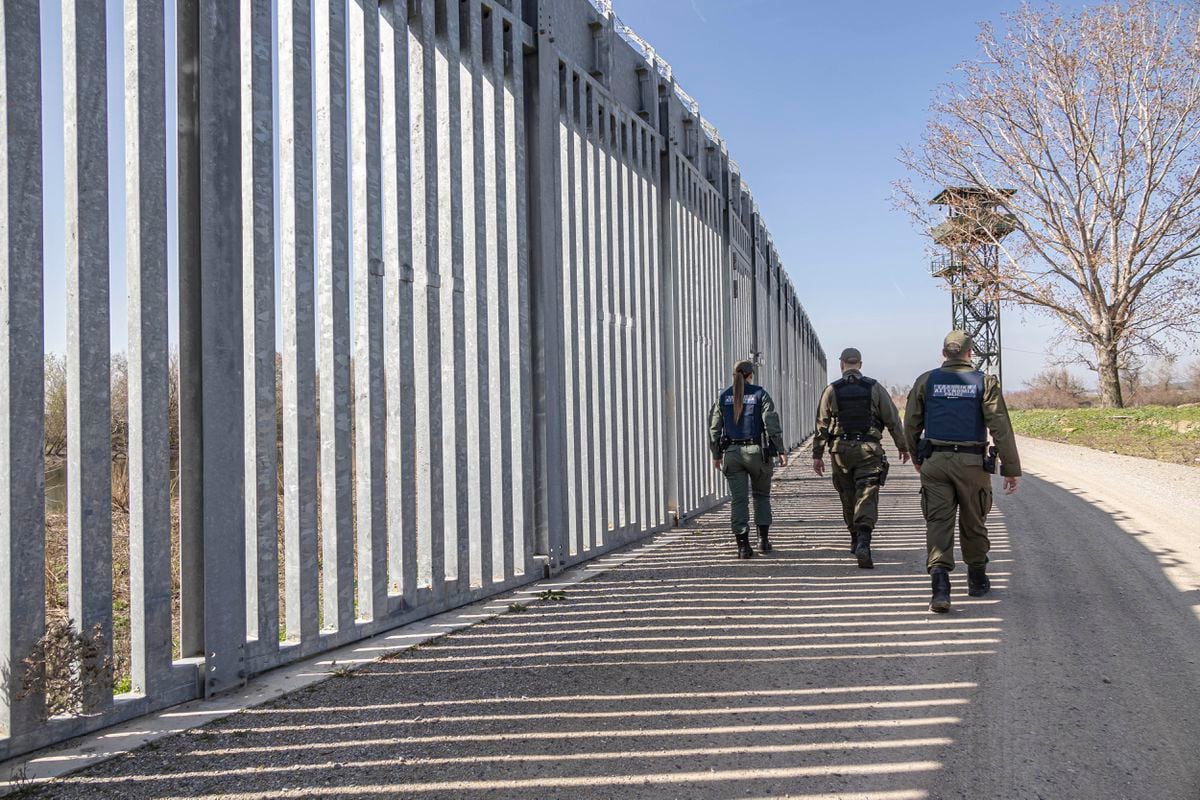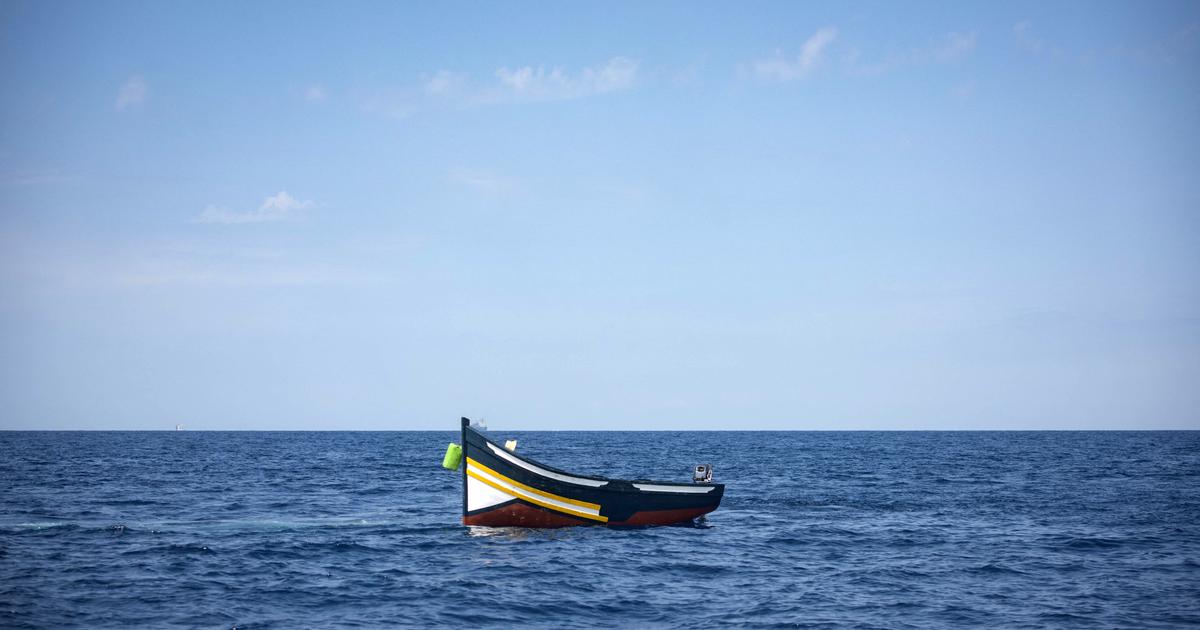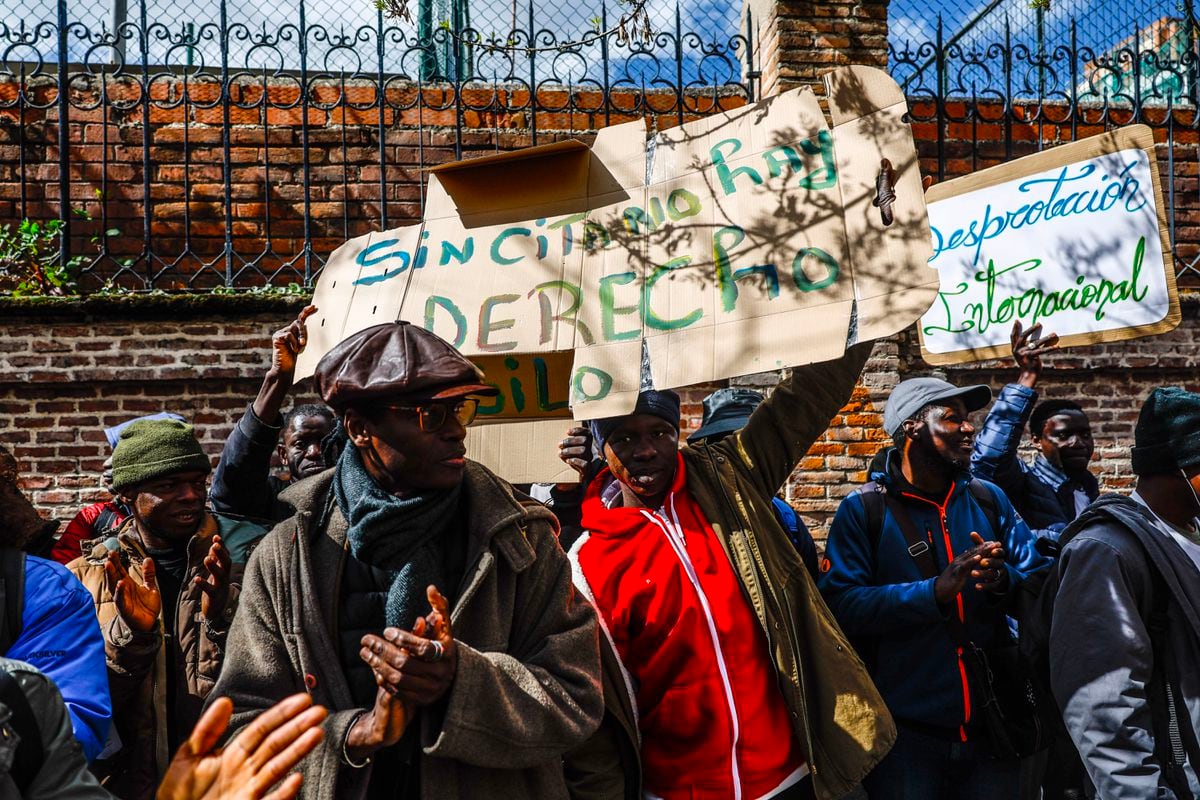A Malian man embarks at the Irún station on a bus bound for Bordeaux on March 11th.Javier Hernández
The controls that France has imposed on its border posts with Spain in response to the terrorist threat and the COVID are having consequences in terms of migration. Between November and March, the French authorities returned 15,757 illegal immigrants to Spain, more than 3,000 a month, according to data from the French border police released by the French newspaper
Le Figaro
and confirmed to El PAÍS. The numbers have skyrocketed compared to the same period of the previous year, coinciding with a greater migratory pressure from the Canary Islands, but also with the armor that the French maintain unilaterally in the shared passages.
The vast majority of the immigrants, 12,288 people, were returned when they tried to enter French territory. The figure triples that registered between November 2019 and March 2020. The remaining 3,469 people were intercepted in neighboring departments, particularly in the Eastern Pyrenees, which border Catalonia. In this case it is a 25% increase. At these controls, the French authorities have detained 108 people for facilitating the crossing of migrants across the border. "They can be truck drivers or compatriots, they are not necessarily part of a structured organization,"
French police deputy spokesman Christian Lajarrige
told
Le Figaro
.
Spain and France are part of the Schengen area and, in theory, there is no border between the two countries. But, since the terrorist attacks of 2015, Paris has established border controls based on an article of the European treaty that allows it to carry them out for reasons of “national security”. Last November, after the latest attacks in France, its president, Emmanuel Macron, doubled the number of troops at the borders and deployed 4,800 policemen, gendarmes and the military to establish controls 24 hours a day. Macron, who fears the rise of the extreme right of Marine Le Pen in next year's presidential elections, also closed 19 border posts with Spain.
The reinforcement of controls has also had an impact on the Alpine border between France and Italy. Between November and March, France barred 23,537 people from entering, double the number in the same period a year earlier, according to the figures cited. To these are added, 2,502 migrants detained in French territory, an increase of 39%.
To expel immigrants who enter their territory illegally, France and Spain use a 2002 bilateral agreement that allows them to be returned within four hours of crossing the border. The agreement includes a series of guarantees, such as that the immigrants are handed over to the Spanish police or that their return is formalized in writing. The French police data do not specify how many immigrants have been returned based on this bilateral agreement, but police sources and the immigrants themselves have indicated that most of it is done without a single procedure.
The hefty figures do not mean, in any case, that all the returnees stay in Spain. The gendarmes zealously control bridges, stations, buses, cars and trains, but most migrants try again three, four and even five times until they finally manage to cross. Between March and April, THE COUNTRY has been in contact with 14 migrants, the majority Malians, who had the objective of reaching Paris and other French cities. Everyone, sooner or later and after several attempts, succeeded.
A good part of the migrants who have made their way to the French border in recent months come from the Canary Islands. After months of being blocked on the islands, they have managed to reach the Peninsula by their own means or, in the case of the most vulnerable, it has been the Secretary of State for Migration that has referred them to reception centers in other provinces. It is not known how many of them decide to stay in Spain, but there is always a significant percentage that go to France and other European countries to meet relatives and friends.
These migratory flows, the so-called secondary movements, are an obsession for Paris and Berlin that pressure Madrid to prevent migrants from moving across the continent. France, in fact, has already put on the table a reform of the Schengen treaty to review the rules governing the area of free movement in Europe and to strengthen internal border control.



/cloudfront-eu-central-1.images.arcpublishing.com/prisa/LBM66KQSSNED3ENKVDPGTMUMLQ.JPG)





